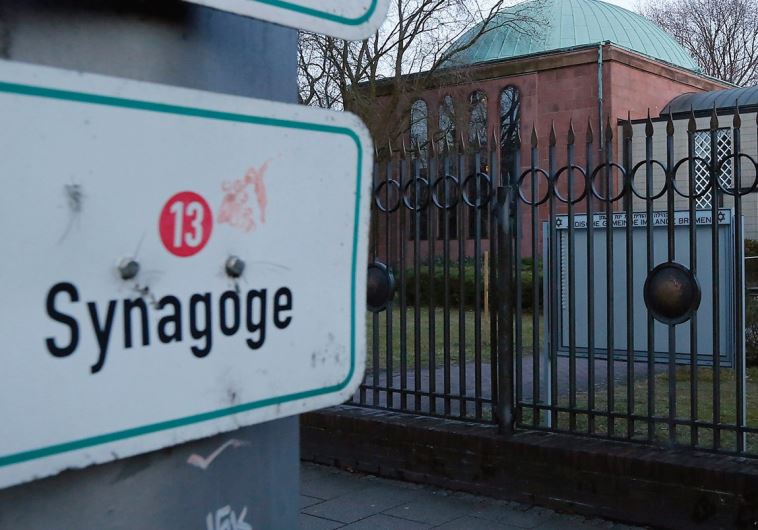Fundamentally Freund: Europe’s yarmulke test
It is time to consider whether a continent so inhospitable to Jews and Judaism is truly a place they can call home.
 POLICE IN a van guard the Jewish synagogue and community center in the northern German city of Bremen.
POLICE IN a van guard the Jewish synagogue and community center in the northern German city of Bremen.